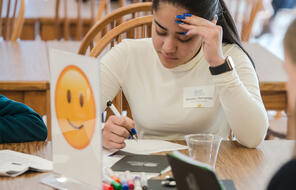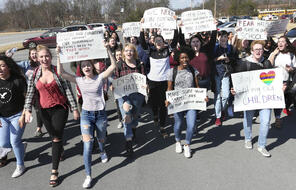Resource Library
Find compelling classroom resources, learn new teaching methods, meet standards, and make a difference in the lives of your students.
We are grateful to The Hammer Family Foundation for supporting the development of our on-demand learning and teaching resources.

Introducing Our US History Curriculum Collection
Draw from this flexible curriculum collection as you plan any middle or high school US history course. Featuring units, C3-style inquiries, and case studies, the collection will help you explore themes of democracy and freedom with your students throughout the year.
3282 Results
Our Names and Our Place in the World
Students consider what parts of our identities we choose for ourselves and what parts are chosen for us, as well as the impact our names can have on our identities.

Making Meaning of Community
Students explore the idea of “community” in order to identify its key aspects and deeper meaning.

10 Questions for the Future: Student Action Project
Students create a plan for enacting change on an issue that they are most passionate about using the 10 Questions Framework.

Emoji Emotions
Students use emojis to practice sharing what they are feeling while building empathy for their classmates.

Picture This
Students engage with an intriguing image that lacks context or a title, drawing on their close viewing and analysis skills.

10 Questions for the Past: The 1963 Chicago Public Schools Boycott
Students explore the strategies, risks, and historical significance of the 1963 Chicago school boycott, while also considering bigger-picture questions about social progress.

Rose, Thorn, Bud
The Rose, Thorn, Bud exercise increases students' self-awareness as they reflect on recent successes, challenges, and opportunities.

Fist to Five
Students communicate how they are feeling in response to a chosen prompt, giving teachers a pulse on the class’s opinions or well-being.

First Chapter Fridays
Read aloud a chapter of a book your students are interested in to build community around stories and storytelling.





